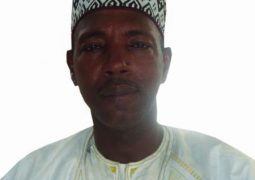The
Gambia Bureau of Statistics (GBOS), with support from government and developed
partners, Friday launched the Integrated Household Survey Summary Findings at
the Kairaba Beach Hotel.
Speaking
at the launch ceremony, the UN country resident coordinator and UNDP
representative, Ade Mamanyone Lekoetze, said after five years, the current
findings could not have come at a better time than now when the country is
finalising its medium-term national development plan.
The
findings would not only be important for the new government to set targets but
would provide solid baseline information to measure future progress and also
serve as a good report card for performance in the implementation of MDG’s, she
said.
It
will also form a useful baseline for the SDG’s and the new administration of
The Gambia, she added.
She
continued saying the survey findings provide useful data for the new Barrow
Government which, when used, would lead to more people centered on development
processes for greater impact in their journey to SDG one by 2030.
Lamin
O. Camara, permanent secretary at the Ministry of Finance and Economic Affairs,
said the findings of the 2015/2016 Integrated Household Survey would guide the
government and its development partners in formulating strategies to address
development challenges in line with the heightened expectations of the
population under the new dispensation.
“It is the first major household survey that
is being finalised after the approval of the Sustainable Development Goals
(SDG) indicators as well as the AU Agenda 2063. These are both international
frameworks to which The Gambia has subscribed and therefore, the results from
this survey will help the Government of The Gambia to finalise the national
development,” he said.
Mr
Camara further said for the first time, poverty data analysis was done beyond
national and regional level which provides better data for disaggregated
planning and evaluation.
“The
Key HIS findings indicated that poverty increased from 48.1% in 2015,” he
added.
Read Other Articles In Article (Archive)
NPC Boss Calls For National Solidarity To Fight Poverty
Jun 11, 2009, 7:30 AM
Alleged mobile thief arraigned
Dec 17, 2010, 1:55 PM



